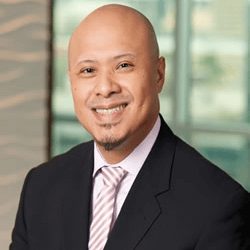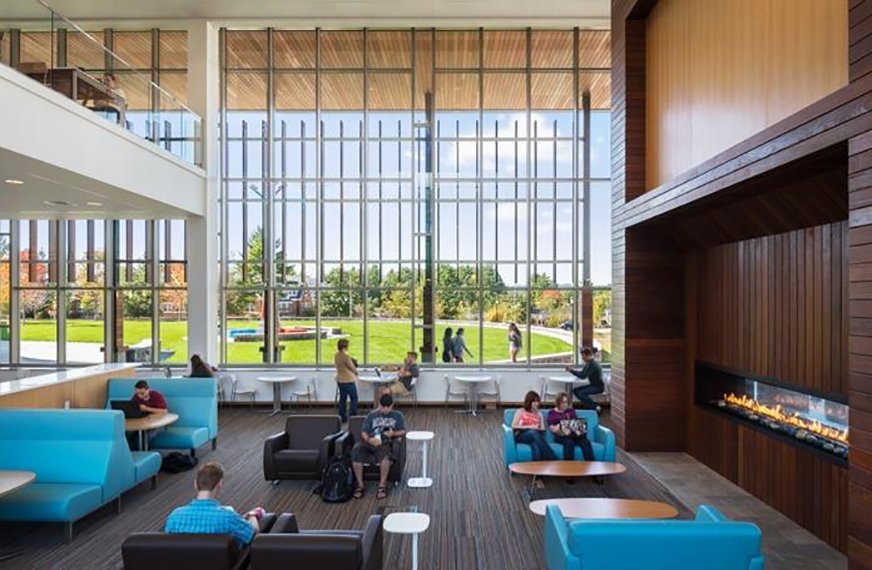This is the second part of Intelligenthq’s interview with Dr. Gregory Fowler, Chief Academic Officer for the College of Online and Continuing Education at Southern New Hampshire University.
Your online MBA program has also been getting a lot of recognition in several publications. What makes your MBA program different from other universities?
Earlier I spoke about how in most cases program and course outcomes are not particularly different from one institution to the next. One major exception to this is when the actual field of study changes, and this is the case with the MBA. An institution’s ability to adapt is impacted by many factors, including who is on the faculty and how well they are keeping up with such changes as well as whether there is the will and consensus to move forward. Both scholars and practitioners have noted in the last decade how students graduating with an MBA, need to demonstrate a different mixture of hard (skills (quantification, for example) and soft skills (organizational leadership).
After the housing and financial crises of the last decade, one area, for example that institutions are emphasizing more is the need for mastery of corporate ethical behavior. The SNHU MBA, built through a collaboration between subject-matter experts from industry and academics, is designed as a holistic experience built around a project that runs throughout the core of the program, enabling each course to cover a different set of business skills while adding to the student’s overall understanding of how the various aspects of business fit together. Additionally it does the following:
Rebalances the coverage between the quantitative/hard skills and the non-quantitative/softer skills.
Is as authentic as possible, by allowing students to select real-world projects from their own professional or personal experiences.
Weaves overarching themes such as ethics, communication, decision-making, social responsibility, innovation, and business sustainability throughout all of the core courses in the program.
Was designed to meet SNHU’s commitment to gathering student learning outcomes data by being built on a solidly designed set of program outcomes with mapped and supporting course outcomes and assessments that enable SNHU to directly measure student achievement of individual learning outcomes at the course and the program levels.
Faculty play a critical role in the development of your students’ learning and in helping build their business competencies. What type of things are your faculty involved in or doing that makes their classroom unique to their learning experience?
The deliberate reflection and design of our student experiences by faculty are at the core of our academic quality. The review and analysis of all of the data that we are constantly receiving about student, faculty, and learning resource performance is under constant review every term to aid us in figuring out how we can continue to get better at what we do. Even in areas where students are performing admirably we are looking to find out where might we strengthen our support and looking for systemic fluctuations in student performance. That review of data and how it drives our decision making moving forward as well as constant communication between all levels provides a unique culture for our students. Faculty who work with us MUST demonstrate that commitment to providing the best learning environment (notice I said learning and not teaching) possible for our students. While all of our faculty have the academic qualifications to teach, we only allow faculty into our learning environment who are committed to the mission, vision, and culture of our institution. This has resulted in some very highly recognized faculty being denied the opportunity to teach because, while their contributions to the field of study were clearly laudable and appreciated, their priorities in relation to student success did not mirror our own.
What type of qualifications and experiences do your faculty bring to the class? How do you make sure they stay updated in their area of expertise and field of study?
Specific to the MBA, all of our faculty are hired with the qualifications of both our regional (NEASC) and professional (ACBSP) accreditation standards in mind. All MBA faculty have at a minimum a master-level degree in a business field related to the courses they teach in, and many have doctoral-level degrees. Additionally many of our MBA faculty hold additional certification in their areas of instruction. However, in keeping with our vision of our degrees—particularly professional ones like the MBA—being a culmination of mastering both academic and real-world experiences, we are very pleased that a substantial number of our teaching faculty bring to the classroom their experiences as professionals utilizing their degrees in the industry as well as academic settings. One of our Deans calls these faculty “pracademics,” that is, academics who also are professionals beyond the classroom. As a result their skills and knowledge of the field are constantly being updated. Additionally we have funds set aside for professional development to ensure faculty can engage in events, research or additional certifications to help keep our student’s experiences and program outcomes relevant and current.
SNHU website’s screenshotDo your students have input on faculty promotion, award and recognition program? If so, can you expand on this and provide examples?
Students have the opportunity to complete a survey at the end of each course they take to provide feedback on the course, the course resources and the faculty member who taught the course. That data is taken into account when rating a faculty member’s overall performance, which in turn drives recognition in many ways, including increased compensation, faculty awards and other types of recognition. For example, students are given the opportunity every year to nominate faculty for the SNHU/COCE Teaching Excellence Awards. Each year one full-time and one adjunct faculty member from COCE receives a Faculty Teaching Excellence Award, which is presented as part of the annual Commencement ceremonies.
We learned a great deal about you and your school. If I was a potential student or employer that was stuck between choosing two different MBA programs, what other things would you want me to know about your degree and school to help with their selection?
Every aspect of the student experience at SNHU is built and evaluated with the student in mind—what the best outcomes are, how students are going to be measured and how we are preparing those students to be measured. But beyond that, even the non-academic aspects of the experience—how we can help when “life happens” situations arise, how we can remove the frustrations and bureaucracy that divert attention from learning success, how we can do better than the places our students have been at before—are constantly in our planning and evaluation and will be reflected in our students’ experiences. That is true in all of our programs, but particularly so in our flagship, the MBA program. The SNHU MBA is designed so students to take something they are personally invested in, use it as the basis to draw these holistic connections, and carry that forward within the program, adding to it in each module and course. At the end each student walks away with something better than a portfolio of evidence – they walk away with a fully ready-to-implement business idea that they can present to their employer, a company, or a potential investor.
Interview with Dr. Gregory Fowler Part 1

Dr. Emad Rahim is an award-winning entrepreneur, educator, author, community leader and TEDx Speaker. He currently serve as the Endowed Entrepreneur-in-Residence at Oklahoma State University and teaches at the Jack Welch Management Institute in the Executive MBA program. He was recognized by the United Nations Foundation as a 2013 Empact100 Honoree for his social entrepreneurship work, received a Congressional Award for his community service and was the recipient of the Forty Under 40 Business Leadership Award sponsored by Syracuse University. His personal story was turned into a short documentary, “Against the Odds,” and featured in the Huffington Post and Forbes. He co-authored “Leading Through Diversity: Transforming Managers Into Effective Leaders” and “The 4-Tions: Your Guide to Developing Successful Job Search Strategies” and is a frequent contributor to the Refractive Thinker book series, CEO Magazine, TweakYourBiz and YFS Entrepreneurship Magazine. Fellow him on Twitter @DrEmadRahim












